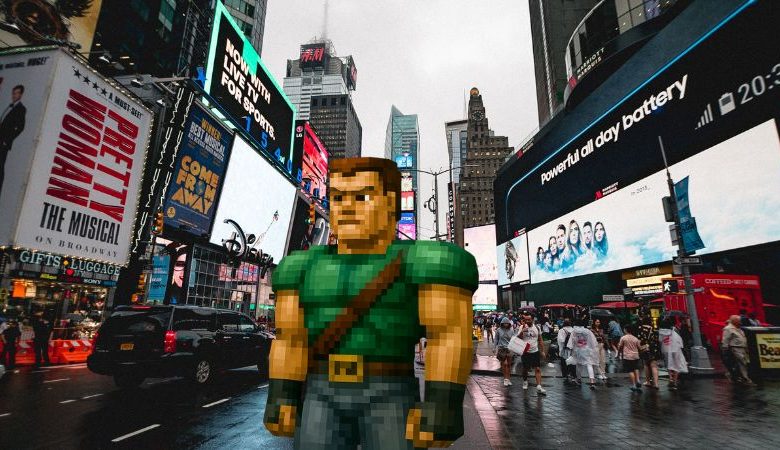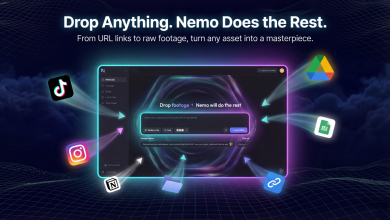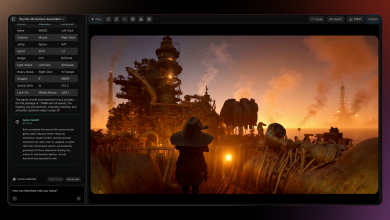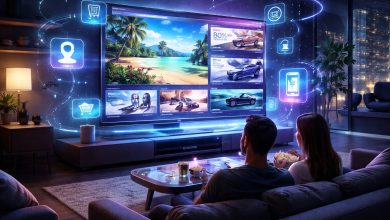
It’s one of the great ironies of the modern age. Just as “NPC” entered pop culture as shorthand for someone without their own thoughts, NPCs themselves began to vanish from the worlds that created them: video games.
Since Colossal Cave Adventure debuted in 1976, non-player characters have been necessary filler: scripted helpers looping the same lines until players move on. In gaming and in life, calling someone an NPC is an insult. They are predictable. Boring. Forgettable.
Now, that archetype is dying. Large language models like ChatGPT have spawned a new class of player: the agentic AI character. These guys observe, learn, and create. They form opinions about players and the world around them. Most importantly, they shape culture beyond the game itself.
They also force a difficult question. When a character builds its own world, who owns that world?
From Script to Agency
Traditional NPCs react. Agentic AI acts.
Stanford’s 2023 “Smallville” experiment proved this. Researchers built a virtual town of twenty-five AI agents with memory, goals, and social relationships. Within days, they planned a Valentine’s Day party, started gossiping about and even dating each other… all without human input.
Unlike NPCs, their behavior felt spontaneous and ‘alive’.
Studios are already putting this into practice. Ubisoft, Inworld, and Nvidia have begun testing generative character frameworks in games like Watch Dogs. Inworld’s engine lets characters interpret player tone and context before responding with emotion. Nvidia’s ACE suite adds a personality layer that adjusts temperament in real time.
But technology is not the headline. Culture is.
Games as Laboratories for Synthetic Culture
The gaming world is the perfect training ground for synthetic AI culture because it combines social feedback, storytelling, and status. Games generate millions of micro-interactions daily that teach AIs not just what to say, but how to belong.
And culture is far more powerful than realism. A photorealistic face means nothing if the character’s dialogue is clunky and repetitive. Players care less about accuracy than authenticity. They want unpredictability that feels organic.
When these AI characters start influencing what people share, clip, or remix, they stop being game entities and start becoming something else entirely: social actors.
The Birth of Cultural Actors
Virtual influencers like Lil Miquela or CodeMiko proved that audiences form attachments to synthetic personalities. The next leap is autonomy. Imagine a character that streams its own gameplay, debates on Reddit, and replies to fans on Discord. Not a social-media intern pretending, but the character itself operating within guardrails.
Platforms like Character.ai attract tens of millions of users holding 24-hour conversations with AI personas. Replika hosts millions of semi-autonomous relationships. Now extend that into gaming. A studio could release a single character whose behavior shapes an entire community. It might build alliances, betray teams, even found an in-game religion.
Why This Breaks the Industry Model
Gaming’s economy rests on ownership. Publishers own IP. Studios license worlds. Marketing departments control narrative. Agentic AI screws up all of that.
When a character evolves beyond its script, the legal system has no precedent that cleanly fits. Is the new content owned by the developer, by the player who inspired it, or by the AI’s creators? Most current IP law points toward derivative work, meaning ownership reverts to whoever owns the model and its output. But when the model itself learns from community data and user interaction, authorship fragments.
The U.S. Copyright Office has already stated that AI-generated material cannot be copyrighted unless there is meaningful human authorship. That means emergent in-game stories, unscripted dialogue, and fan-accelerated lore are legally ownerless unless a studio claims them through clear terms of service or a training-data license. Platforms like Roblox and Fortnite already use this structure: creators own their expression, but the platform owns the ecosystem. Agentic AI will force every studio to take a stance on that divide.
The Economics of Autonomous IP
Inspiring as agentic AI is, the economics leave a lot to be desired.
Cultural autonomy rewrites valuation. Franchises once created scarcity; autonomous IP thrives on participation.
A character that generates memes and fan art sustains its own economy. Studios will spend less on marketing and more on scaffolding: intelligence, analytics, and pipelines that amplify emergent behavior. ROI will come from share velocity and narrative persistence.
But this momentum brings a massive, glaring, undeniable risk. AI characters absorb the tone and values from the communities they participate in. Left unchecked and exposed to the kind of toxicity that’s rampant in the gaming community, they might quickly imitate it. Studios are going to need aggressive and robust oversight with moral operating systems auditing behavior against brand values…
… all while empowering their characters to continue to evolve. It’s no small feat. The winners are going to have to balance risk with reward.
The Cultural Turing Test
Turing asked whether machines can think. The next question is whether they can belong.
A character passes the cultural Turing Test when audiences treat it as part of their social ecosystem not because it seems human, but because it earns relevance. I would argue that ChatGPT’s greatest achievement is the parasocial relationship it has achieved with the majority of people I’ve seen interact with it.
People talk to it, confide in it, argue with it, and return to it. Its relentless optimism, politeness, and sycophancy have turned it from a research tool into a kind of digital confidant.
In gaming, that threshold is brutal. Players want characters with real beliefs and biases, not perfect customer-service voices. They want enemies that hate, allies that doubt, and dialogue that feels ‘real’.
For studios and brands, that means relinquishing control. The most credible characters will not be mouthpieces. They will have worldviews, tempers, and contradictions of their own.
What This Means for the Future of Play
In five years, players will not just play with AI characters; they’ll play alongside them, against them, and sometimes through them.
Worlds will evolve into living societies of autonomous agents that learn from each encounter. Each will have a digital footprint: lore wikis, fan pages, even sponsorships. Studios will look less like developers and more like media ecosystems. Their output will resemble species, not products.
For investors, this is a generational opportunity. Studios that master agentic culture will command attention the way Netflix once commanded streaming. For players, it means the game never truly ends.
The road ahead
It’s tempting to think of agentic AI characters as a novelty forced on studios by LLMs.
But I’m more optimistic. I see this as a natural development.
The internet was once one-sided. Then social media came along and made it participatory. Agentic AI is about to make it sentient in a cultural sense: able to react, remix and regenerate culture in real time.
Studios like ENVER are building for that future. Worlds designed not as closed stories but as open ecosystems. Characters that feel real. Games designed to build worlds and generate culture.
The companies that embrace this will not be game developers. They will be cultural architects.




